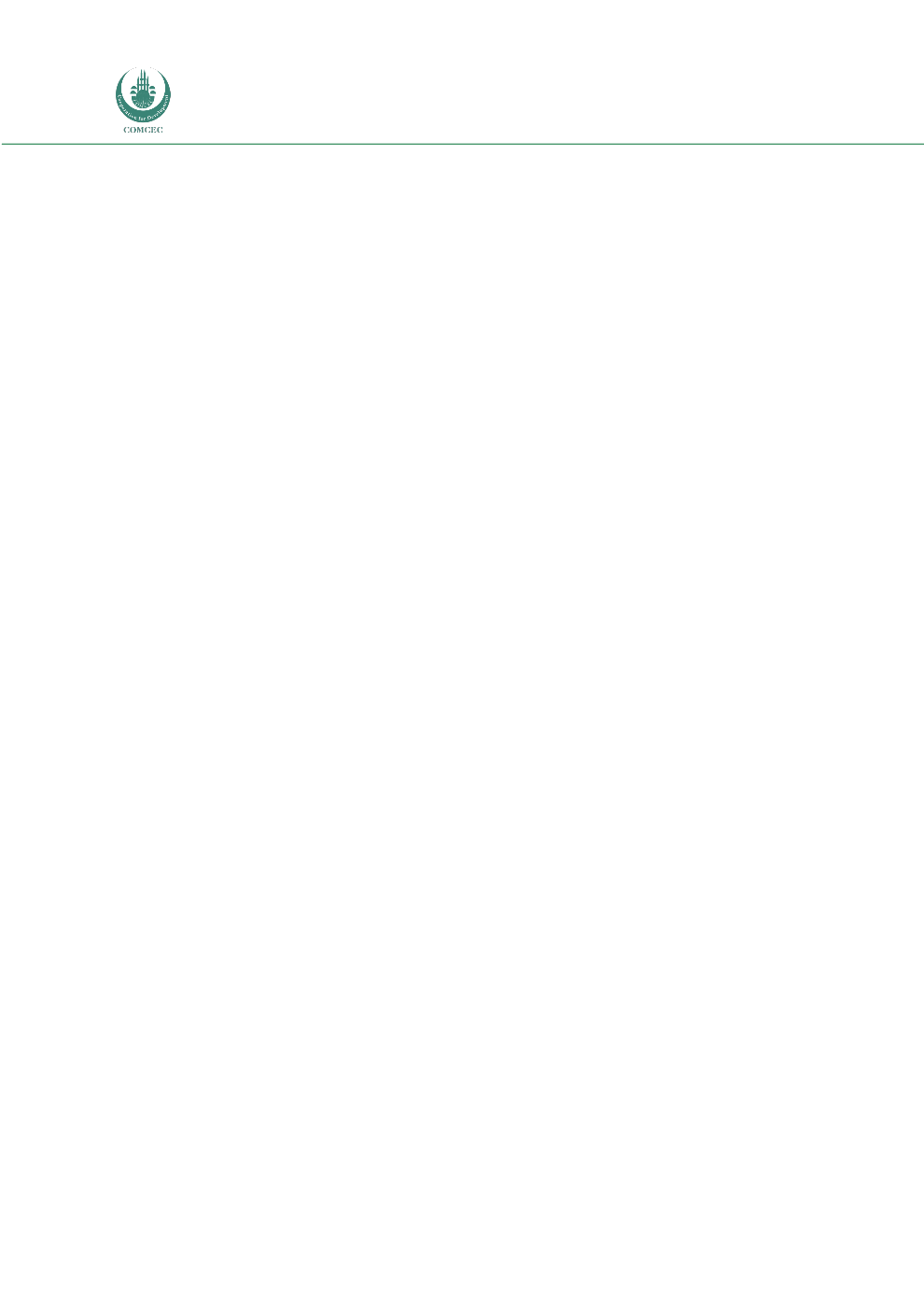

Risk Management in
Islamic Financial Instruments
54
Monitoring risk is critical to catch problems early and prevent risk from spreading widely and
deeply. One way to mitigate risk is through diversification. Diversification includes diversifying
geographically and across sectors by expanding the depositor base. Financial risk can be
further prevented by reducing client exposure, which can lead to declining risk for
intermediaries, such as banks. It is important to manage corporate governance risks that
include operational, fiduciary, transparency, Shariah, and reputation risks (ISRA 4). Shari’ah
non-compliance risk is defined as “the risk that arises from IFI’s failure to comply with the
Shariah rules and principles determined by the Shariah board of the relevant body in the
jurisdiction in which the IFIs operate.” It is difficult to measure Shariah risk, since no risk
management model exists for it (ISRA 23-24). Iqbal proposes a four-pronged strategy for
Islamic risk management. He advices the need to understand derivatives in a Shariah context,
expanding the role of financial intermediaries, applying takaful, and using financial
engineering to develop synthetic derivatives and off-balance-sheet instruments (“Iqbal Paper
4” 10-12)
3.5.1 Liquidity Infrastructure
The
Stability Report 2013
describes liquidity management as “one of the most challenging tasks
faced by IIFS (103).” The challenges IIFS face is due to many reasons. Shariah restricts interest-
based transactions, the transfer of debt, and the use of specific instruments. In countries that
operate both conventional and Islamic finance systems, the Islamic finance industry is at a
disadvantage, as it lacks Shariah compliant instruments that, for example, can mop up excess
liquidity or allow Islamic banks to hold risk-free government papers (Grais 3-4). In addition,
there is inactivity in secondary market, weak supervisory tools, and a lack of Shariah
compliant open market operations to meet monetary policy objectives.
As a result, IFSI in a majority of the jurisdictions in the world are obliged to maintain a higher
level of cash, given the absence of
Sharī`ah
-compliant, high-quality liquid assets (HQLA), vis-à-
vis their conventional counterparts. Besides, the dominance of uncollateralized interbank
transactions such as commodity
Murābahah
transactions (CMT), interbank
Mu
ḍ
ārabah,
and
interbank
Wakālah
results in increased counterparty risk apprehension in bilateral
arrangements in stressed market conditions. Due to such market conditions, the liquidity
problems with one or more IIFS can augment the potential for systemic risk in crisis times.
(IFSB 2013)
The
Islamic Finance and Global Financial Stability Report
issued by the IFSB-IDB-IRTI in April
2010 outlined some important aspects on which the industry needs to focus its attention:
Enhancing the financial resilience and stability by the developing a robust national and
international liquidity infrastructure to enhance liquidity provisions through
monetary policy and money market operations
Developing a set of comprehensive, cross-sectorial prudential standards and a
supervisory framework covering Islamic banking,
Takāful
and the capital market

















